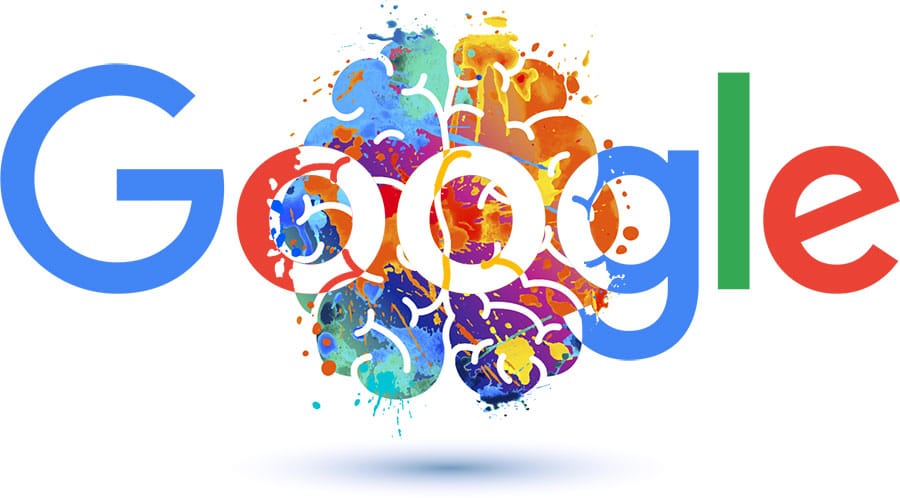Pros and Cons Of Using Conversion Actions As a Ranking Factor
There is often a disparity between what one should do to achieve top placements on Google and what will increase the conversion rate of a page. I see this from title tag to content and internal linking.
For marketers, it may make more sense if conversion rate or similar cues were a more significant weighted ranking factor.
But they’re not. At least, not that I see. And probably for good reason.
But first, let’s look at what can be gained if Google considers user action as a factor for increased rankings.

The Argument For On-Page Actions As A Ranking Factor
A quote that has been floating around for quite some time says, “If you’re not the customer, you’re the product.” I’d love to give credit for the quote, but it seems to have a foggy history for attribution. The idea is that if you’re not paying for a service, you are the product being unknowingly sold. Google often enters my mind when I think of this quote.
If you’re not the customer, you’re the product.
Anonymous
It’s true that we, as the users of Google’s services, are “the product.”
But, I will argue that we are both the consumer and the product. Google is just the machine that keeps us involved and engaged.
Whether you believe that our information is bundled up and sold off to corporations, at minimum, we can conclude that our behavior is sold in the form of paid clicks on Google Ads. Google knows that x% of traffic will click on a paid ad. So, the more searches, the more clicks, and the more revenue.
Some may remark against my position because of the highly debated topic that for years, Google has been pushing a “zero-click” agenda and capturing revenue outside of Google Ads.
We know that Google receives significant revenue from its search text ads. We observe this just by looking at Google’s published financial records. From observing those same records, we also know that general “Google advertising” revenue does make up a significant amount of revenue on their balance sheets.
Therefore, it makes sense to state that our own content becomes the hook. Google engineered a very fancy mechanism of organizing our own content for us where we find micro dopamine releases.
Searching and finding are engrained into our being. It’s part of our reward mechanism.
This may help to explain why 90% of us will even watch TV with our smartphones in our hands. Waiting and ready to seek out stimulus as soon as a commercial or lull in a show arrives. We are addicted to stimulation.
We are the mouse in the maze addicted to finding the cheese…
but here is the critical part…
we also create the cheese.

Google just takes our cheese and puts it in their maze. We willingly rush to the maze without hesitation. We’ve programmed ourselves to do so.
So, what does this have to do with my argument for including on-page user experience as a ranking factor?
We Are The Consumer and The Product
Since we are the consumer and the product (or creator of the product), it is in Google’s best interest to ensure that we continue to receive the stimuli that will keep us in their maze. Plus, as creators, we receive stimuli from other consumers finding our content. Google Analytics creates an easy method to receive mental rewards from our content. We want to see that little line move higher and higher. It’s like a video game.
It seems logical that if Google wants us to increase the level and quantity of stimuli, its search engine results would adapt to show those sites that are most engaging at the top. On the surface, it appears that doing so would benefit Google by satisfying both the searcher and content owner.
But not so fast. There are some cons to consider that might explain why Google doesn’t use on-page user actions as a ranking factor.
The Argument Against On-Page Actions As A Ranking Factor
If Google adjusts the search results for a greater conversion rate (CVR), Google would be shooting itself in the foot and would most likely catch heat from government oversight.
Social Backlash
For a search engine, such as Google, to take CVR into account as a ranking factor, the best result would be accomplished through using a machine learning mechanism that can tailor the SERPs to display what is most likely to convert for each searcher. To do so, our browsing patterns, preferences, and pain points would need to be recorded and analyzed against an extensive collection of users where enough correlative data points can give a significant enough level of confidence that conversion action would take place on a site.
Google’s algorithm would need to know that a large pool of similar users converted on a similar search where specific elements and attributes existed in a particular order on a page or website. Likewise, the inverse would need to be determined. Correlation would need to determine, within a significant degree of certainty, what elements and attributes are detrimental to a conversion rate.
As a society, we’re not ready to allow for the necessary control that would be required to train the machine. Over the last couple of years, companies such as Facebook and Google have come under fire for the amount of personal data that they are collecting.
With the growing privacy concerns, it may be difficult for Google to train a machine learning model so that the search engine results can be tailored to a degree in which our individual actions and propensities to convert on one website versus a competing site are considered into the SERP placements.
Too Good May Be Bad
To expand more on the feedback loop discussed in the argument for using conversion actions as a ranking factor, will that mental reward system that helps Google drive searches weaken if we find the perfect fit every time we search?
I think so.
There is a delicate balance between a frustratingly difficult task, and one so simple our mind does not engage. This is analogous to playing video games. Have you ever played a video that was entirely too easy? At first, playing may be fun. You might even come up with challenges like completing the game in a record time. The inevitable result will be pushing the game off to the side after a few wins.
This balance is observed throughout our lives. A school must be engaging but allow for the student to learn (not too difficult). Work that has challenges and rewards is deemed fulfilling. Games that we played as children no longer interest us because they are simple and deemed “childish.” When we first got our driver’s license, it was fun to drive because there was a challenge to learning. The challenge no longer exists as an adult, and driving somewhere is viewed as more of a chore.
If Google’s search engine became so accurate that the first result had too high of a satisfaction rate, searching would be less engaging. We would lose that micro reward from searching and finding.

Financial Implications
As with many things related to the Internet, we can find a money trail where choices and behaviors lead to monetary gains or losses. If conversion actions become a ranking factor and searching no longer provides us with a mental reward, we will search for answers less often. Lowered search volume will result in fewer ad clicks and a loss of revenue.
Also, let’s consider that if the first organic listing was deemed to be most likely to convert for each particular visitor, the general population of Google users will find even less of a reason to click on ads. We will become even more trained to skip directly the first organic listing.
Maybe Google Knows Best
Can Google engineer the capability to harness machine learning so that their SERPs take conversion actions into consideration? Absolutely. Not only can they make it, but we would eat it up… in the short term.
But our society is not ready to give up what is necessary for us to have such an advanced feature. Plus, Google may be met with financial loss by loosening up on one of the many feedback loops that we have come to rely upon.
Maybe one day. I can dream, can’t I?
